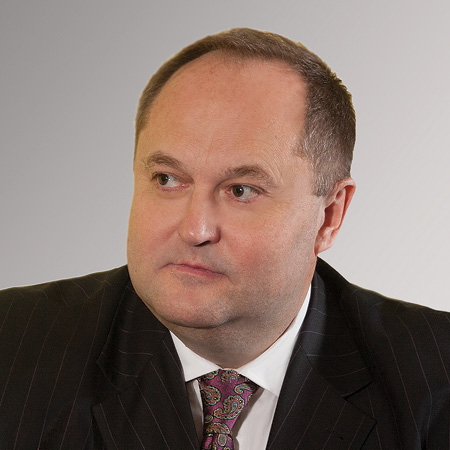Sovcomflot’s abbreviation, SCF, stands for Safety Comes First, and fittingly, it operates a fleet of 140 vessels, with a specialisation in icy conditions, and focuses on safety in its operations. Russia’s largest shipping company, Sovcomflot, is one of the global leaders in maritime transportation of hydrocarbons, and provides service and support to offshore production of oil and gas resources, including exploration.
The company is the parent of Unicom Management Services (Cyprus) Ltd, which provides ship management services with a focus on safety to a range of clients, including the management of the technical, crew, commercial, vetting, and ship building aspects of the trade. Managing Director of Unicom, Sergey Popravko—who is also an Executive Board Member of Sovcomflot—has a strong background, both aboard ships and in their management. “I graduated from the Marine Academy back in 1984,” says Sergey, who went on to serve at sea until he reached the level of Master. “I studied ship management at the World Maritime University in Malmö, Sweden. Then I held different positions, as a chartering manager, a fleet director, and then CEO of Primorsk Shipping Company. Since 2005, I have been working for the Sovcomflot Group as Managing Director of Unicom Management Services.”
A key element of ship management for Unicom is improving efficiency and thus optimising operation costs for its clients. Unicom takes a varied approach to this, using specialist technology, advanced voyage planning, and the minimising of energy consumption, among other methods.
“It’s a rather complex approach in respect to energy efficiency,” says Sergey. “Before a vessel is built we talk about things like improving a vessel’s configuration, applying advanced materials to reduce a vessel’s weight, as well as improving strength, toughness, durability and other useful functionalities. We have spoken about a special shape of propeller, which improves efficiency, and a special type of coating that makes vessels proceed through the water more smoothly.
“In terms of technology there is, of course, the improvement of a vessel’s main engine, and also the use of different kinds of alternative fuels; like switching from oil fuel to gas fuel.”
Sergey also says that proper voyage planning, weather routing, and avoiding adverse weather all contribute to improving the overall efficiency of a sea voyage, and this can extend to deliberately slow steaming to arrive on a specified date, rather than proceeding ‘full ahead’.
“If you have time and do not need to arrive earlier than scheduled, you can proceed at a much slower speed and consume less energy,” says Sergey. “All of these things could save you up to 12.5% of your energy, as was proven during the energy audits on our vessels.”

